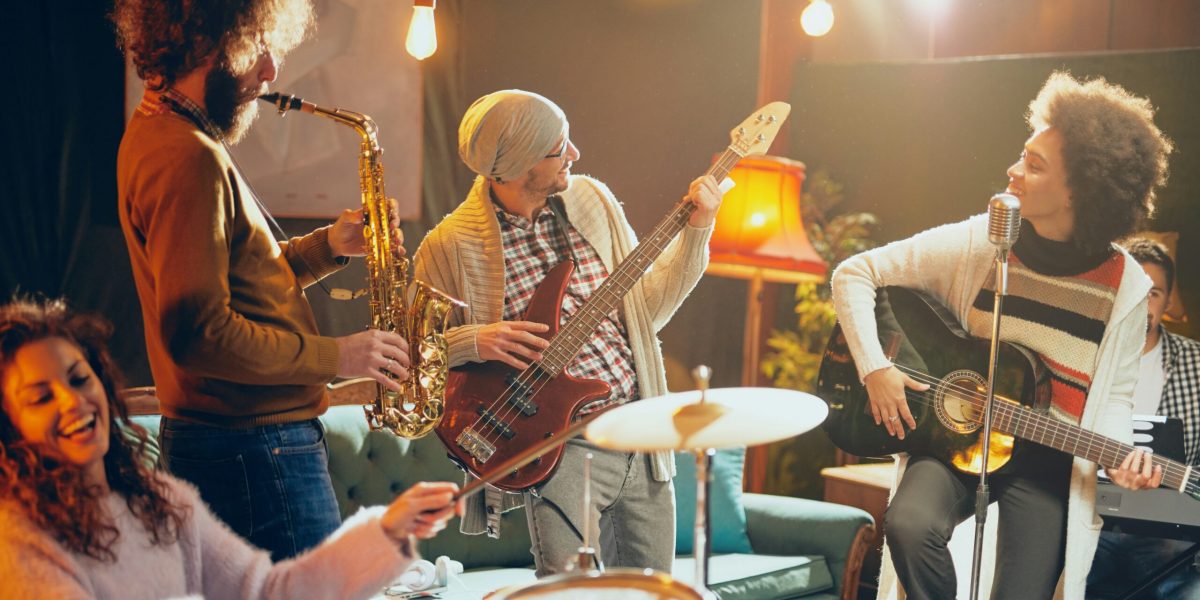How Did Seattle Become a Hub for Grunge?
In the 1980s, Seattle’s isolation from mainstream music hubs like Los Angeles and New York created a distinct environment for musicians. Without the immediate influence of these larger cities, Seattle artists crafted a sound that spoke to the city’s unique character. The grunge movement, with its gritty tones and rebellious energy, was born in this space, reflecting Seattle’s ethos of authenticity and independence.
Grunge wasn’t just music; it was an identity. Musicians experimented with distorted guitar sounds, introspective lyrics, and a raw vocal style that resonated with a generation searching for realness. This sound gave birth to a subculture, challenging commercialized music and echoing the struggles of everyday life. Major bands like Nirvana and Pearl Jam put Seattle on the global map, marking it as a place where creative integrity thrived.
The legacy of grunge is more than nostalgic—it’s foundational to Seattle’s music culture. The impact of bands like Nirvana is still evident today, as younger artists build on that legacy. The spirit of grunge is alive in many modern genres popular in Seattle, proving that the city’s music scene is not just about moving on from its past, but building upon it. By keeping these roots alive, Seattle preserves its history even as it moves forward.
What Drives Seattle’s Modern Music Scene?
Seattle’s music scene today is as diverse as its population. As the city has grown, so has its cultural landscape, now boasting music genres from hip-hop to indie rock, electronic to folk. This variety is partly thanks to Seattle’s openness to artistic expression and its supportive communities, which allow emerging artists to explore and share their voices. Music lovers in Seattle can attend hip-hop performances, jazz nights, and indie rock shows—all within a single weekend.
One of Seattle’s most notable music festivals, Bumbershoot, showcases this diversity. Held annually, Bumbershoot features artists across genres, reflecting Seattle’s evolving tastes and interests. From big-name headliners to emerging local acts, the festival provides a stage for varied talents, celebrating Seattle’s inclusive music culture. Events like these serve as a testament to the city’s dedication to embracing different sounds.
In addition, venues like The Crocodile, Neumos, and the Showbox have become cultural landmarks, drawing both locals and tourists eager to experience live music. The Crocodile, for example, was a regular spot for Nirvana in its early days, and it still champions new artists who reflect Seattle’s independent spirit. These venues not only host concerts but foster a close-knit community where artists and fans connect, creating an atmosphere that feels both fresh and familiar. Seattle’s embrace of modern sounds, along with its enduring respect for the past, keeps its music scene dynamic and inclusive.
Why Does Live Music Remain So Vital in Seattle?
Live music continues to be an essential part of Seattle’s identity. The city’s venues are more than just stages; they are spaces where Seattle’s musical history and contemporary talent converge. For instance, the iconic Paramount Theatre hosts performances by renowned musicians, while smaller spaces like Columbia City Theater allow emerging talents to shine. This mix of large and intimate venues allows Seattle’s music community to thrive, providing opportunities for musicians at every level.
Seattleites value live music for its ability to create shared experiences. Watching a band perform live isn’t just about the music; it’s about being part of a moment that can’t be replicated. Events like the Seattle International Film Festival often include live performances, underscoring the importance of music in the city’s broader cultural scene. Residents and tourists alike look forward to these gatherings, which offer a break from daily routines and bring people together through a shared love of music.
Moreover, live music helps build connections between artists and their audience, creating a lasting impression that recorded music simply cannot achieve. Artists in Seattle, whether established or up-and-coming, understand the value of connecting with their listeners. This dedication to live performance is one reason why Seattle has remained a city where music feels personal and accessible. Even as technology changes the music industry, Seattle’s live music scene continues to thrive, reminding people that sometimes the most authentic experiences happen in person.
Seattle’s music culture isn’t just a relic of the past. It’s an evolving tapestry, interwoven with the city’s diverse community, history, and passion for authentic expression. From grunge legends to new voices, Seattle’s music scene is a constant celebration of creativity and resilience. Whether in a crowded concert hall or an intimate local bar, Seattle’s love for music remains palpable. This ongoing connection to its musical roots is what keeps the Emerald City one of the most vibrant music hubs in the United States.






